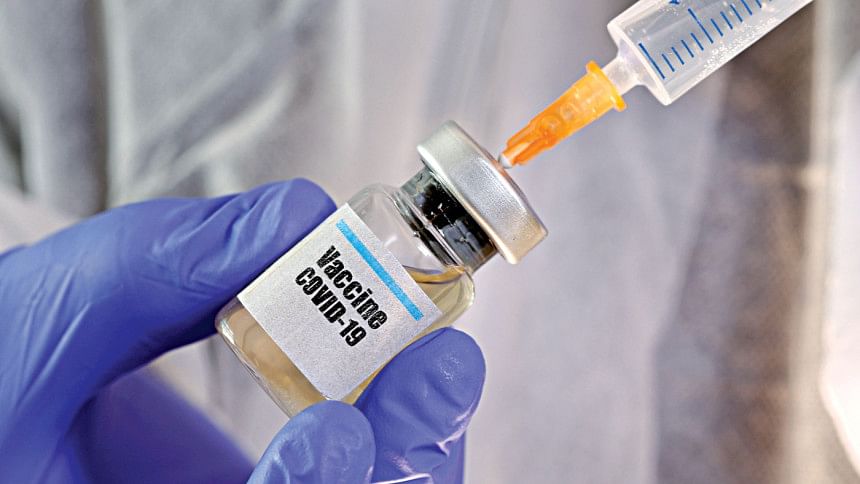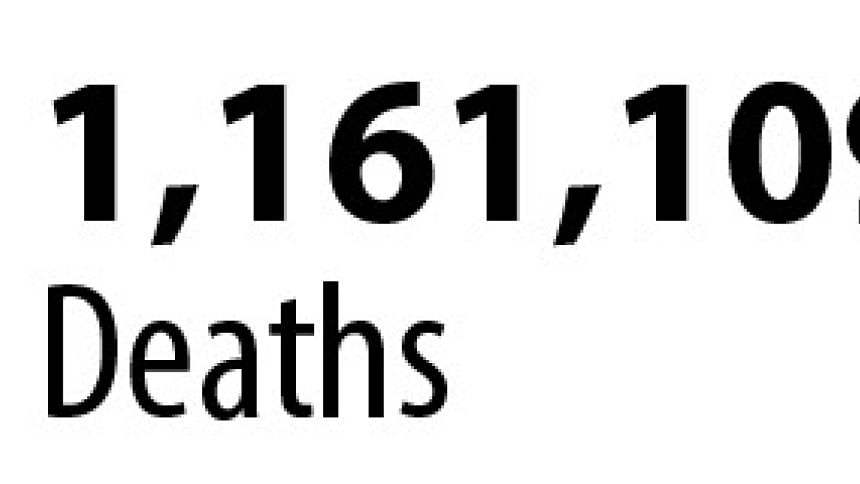Oxford vaccine gives hope to all age groups

The Covid-19 vaccine being developed by the University of Oxford produces a similar immune response in both older and younger adults, and adverse responses were lower among the elderly, British drug maker AstraZeneca Plc said yesterday.
A vaccine that works is seen as a game-changer in the battle against the novel coronavirus, which has killed more than 1.15 million people, hammered the global economy and shuttered normal life across the world.
The positive news offered some hope to millions around the world, specially Europe, where leaders warned of difficult months ahead as the resurgent Covid-19 pandemic forced authorities to impose new restrictions to try to curb the spread of the disease.
However, British Health Secretary Matt Hancock cautioned that the vaccine would not be widely available until next year and said "we're not there yet".

"It is encouraging to see immunogenicity responses were similar between older and younger adults and that reactogenicity was lower in older adults, where the COVID-19 disease severity is higher," an AstraZeneca spokesman told Reuters.
"The results further build the body of evidence for the safety and immunogenicity of AZD1222," the spokesman said, referring to the technical name of the vaccine.
The news that older people get an immune response from the vaccine is positive because the immune system weakens with age and older people are those most at risk of dying from the virus.
The Financial Times reported earlier that the vaccine, being developed by Oxford and AstraZeneca, triggers protective antibodies and T-cells in older age groups - among those most at risk from the virus.
The Oxford/AstraZeneca vaccine is expected to be one of the first from big pharma to secure regulatory approval, along with Pfizer and BioNTech's candidate.
If it works, a vaccine would allow the world to return to some measure of normality after the tumult of the pandemic.
Called AZD1222 or ChAdOx1 nCoV-19, the vaccine was developed by Oxford University scientists and licensed to AstraZeneca in April, which took on the task of scaling trials and production.
The vaccine is likely to provide protection for about a year, CEO Pascal Soriot said in June.
The British drugmaker has signed several supply and manufacturing deals with companies and governments around the world as it gets closer to reporting early results of a late-stage clinical trial.
The news came as the head of the World Health Organization (WHO) on Sunday called for global solidarity in the rollout of any future coronavirus vaccine, as the number of cases soared across the world.
In a video address at the opening of the three-day World Health Summit in Berlin, Tedros Adhanom Ghebreyesus said the only way to recover from the pandemic was together and by making sure poorer countries had fair access to a vaccine.
"It is natural that countries want to protect their own citizens first but if and when we have an effective vaccine, we must also use it effectively. And the best way to do that is to vaccinate some people in all countries rather than all people in some countries," he said.
"Let me be clear: vaccine nationalism will prolong the pandemic, not shorten it."
Apart from the vaccine news, the picture was unrelentingly grim in Europe as a string of countries reported record increases, led by France, which posted more than 50,000 daily cases for the first time on Sunday, while the continent passed the threshold of 250,000 deaths.
At least 43,080,500 cases of coronavirus have been registered since the outbreak emerged in China last December, according to a tally from official sources compiled by AFP at 1100 GMT on Monday. Of these, at least 29,194,100 are now considered recovered.
On Sunday, 4,313 new deaths and 408,969 new cases were recorded worldwide. Based on latest reports, the countries with the most new deaths were India with 480 new deaths, followed by the United States with 461 and Iran with 337.
Governments have been desperate to avoid the lockdowns which curbed the disease at the start of the year at the cost of shutting down their entire economies. But the steady rise in new cases has forced them to ratchet up controls steadily.
In Spain, which has had more than 1 million cases of the disease, Prime Minister Pedro Sanchez warned the country was facing an "extreme" situation as he announced a new state of emergency on Sunday, imposing local nighttime curfews and banning travel between regions in some cases.
Italy, the country worst hit in the early stages of the crisis in March, also imposed new curbs, ordering restaurants and bars to close from 6 pm and shutting down cinemas, and gyms and imposing local curfews in several regions.

 For all latest news, follow The Daily Star's Google News channel.
For all latest news, follow The Daily Star's Google News channel. 




Comments